Fall 20-Spring 21 Honors Faculty Fellows
Main Content
Fall 2020: Faculty Fellows in the Cluster on Cradle to Cradle
Edward Brunner, Professor Emeritus, English
The “Anthropocentric” defines a time when the work of humans has devastatingly altered the planet’s environment. The results are unnerving enough to demand innovative approaches. This course studies the power of artworks in a variety of different formats (photography, painting, verse, dance, film, animation, and short fiction) to register the threat of a catastrophic future by engaging us both intellectually and emotionally. These artworks may also carry within them clues, tips, and promptings that offer alternative approaches to the crisis before us. We will ask:
When artists and writers place the global environmental crisis at the center of their work, what should we expect as a takeaway? How do some artworks present themselves as “arts of living” – encounters that both explain and guide? Where can we find artworks that serve us both intellectually and emotionally?
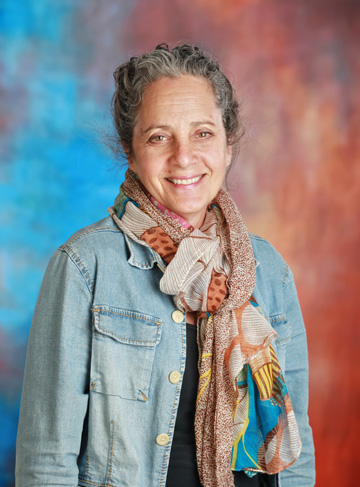
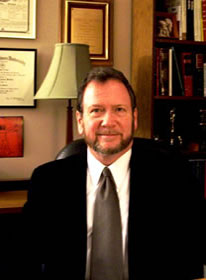
Marsha Ryan, M.D., School of Medicine and Tom Britton, J.D., School of Law
Bioethics is a field of study that involves the ethical considerations of scientific research and the application of scientific knowledge to humans, particularly in the practice of medicine. This course is taught by a physician and a lawyer who bring different approaches to bioethics questions. The topics covered include reproductive rights (Cradle), death and dying (Grave), medical experimentation on humans, and decision making for the elderly. As science progresses, the application of research results will raise new ethical questions, often of increasing complexity and difficulty.

Pinckney Benedict, Professor, English
This course asks students imaginatively to consider what a human diaspora from Earth to the stars might look like and what effects it might have on our conception of "humanity." Using novels, films, TV shows, computer games, podcasts, and VR experiences as our source material, the class will roleplay a multi-year galactic journey aboard a colony ship. Everyone is welcome to contribute their real-world skills, from any discipline or background, or to invent a fictional skillset. No experience in science fiction or technology is required. Coursework will consist of students' keeping detailed video and audio logs of their shipboard duties and off-duty lives; "away missions" that will involve scavenging for resources and encounters with alien lifeforms (faculty?); and finding inventive ways to live together and to cooperate in overcoming the inevitable obstacles that will crop up on such an adventure. By semester's end, we will either reach a habitable world, the cradle of a new human civilization (whatever we decide that will be), or we will drift forever, lost among the stars.
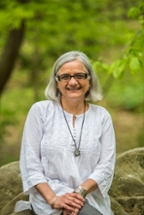
Jyotsna Kapur, Professor, Cinema and Sociology
This course is an iteration of Innovations in Sustainability, a student generated course offered in Fall 2019. We will study communities, practices, and principles that are pioneering ways of living, relating, and creating a sustainable future in the midst of the contemporary global environmental, economic, and political crises. The premise is that the new emerges from the old, both in nature and in human affairs. What are the ways in which the new is being imagined and practiced in communities around the world? How does this imaginary draw on a history of utopian thinking from the past? What is it about our nature as a species that makes us have such a destructive and creative impact on our planet? What does re-inventing our way of life mean? Finally, what are the structural reasons for our current crisis? We will find answers by drawing upon faculty from across disciplines on our campus and by students working in groups on projects that seek to build sustainable futures in the present.
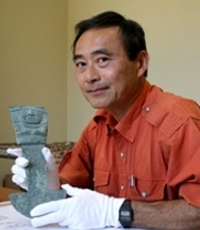
Izumi Shimada, Professor, Anthropology
In the early part of the 16th century, two totally independent and disparate civilizations, the Incas and the Spanish, confronted each other. In this course, we ask: What short- and long-term consequences, regional and global impacts have resulted from the fateful encounter in 1532? How could a culture (lnca) without writing, markets, a monetary system, and other features that are commonly thought to be vital in a "civilization" attain the status of a great civilization? In fact, how did the lnca, a minority non-literate ethnic group establish and govern their vast empire? What do we mean by a civilization or a civilized society? What sources of information can be used and how can we cope with inherent biases in information and our own prejudices? What are resilient and surviving indigenous Andean cultural practices, institutions, beliefs and techniques/technologies that are relevant and beneficial to modern life in and out of the Andes? Against the lineal notion of From Cradle to Grave we will consider regeneration, invention, and ingenuity as fundamental aspects of human history. In fact, the unilineal vision of "Cradle to Grave" is essentially not applicable to the Andean civilization (and many nonindustrial societies and cultures), past and present in both material and nonmaterial senses.
Other Honors Courses
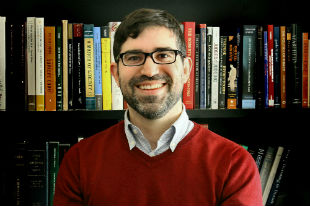
Benjamin Bricker, Assistant Professor, Political Science
The 2020 election season will be a momentous time for American democracy. The choices - both in policy and in character - likely will be stark. In this course, we will examine the 2020 election as a current political and social event. We will also examine the 2020 election in the larger context of democratic theory and comparative democratic practices.
This course will address many of the largest questions in society today: What is the nature of democracy? What are the stakes in the 2020 election? How does the 2020 election impact the future direction of environmental, economic, and social policies in the United States? Can we use the U.S. election experience to draw larger insights and conclusions on democracy worldwide, and policy worldwide? How can we ensure that democracy will endure?
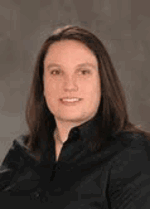
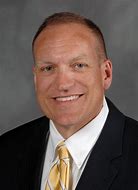
Dr. Bobbi Knapp, Associate Professor of Sport Studies, Kinesiology and Dr. Daniel Mahoney, President, Southern Illinois University System
- Intercollegiate Athletics: Origins Through Contemporary
Intercollegiate athletics has been referred to as the front porch of the modern U.S. university. What started out as student-run sport clubs at elite private institutions eventually became recruiting and marketing tools for colleges and universities throughout the U.S. This course will chart the history of intercollegiate athletics from its start on the playing fields of Yale, Harvard, Princeton, and other private institutions as student-run, student-played, and student-coached sporting clubs to the development of the Power Five Conferences and football coaches who make over $8 million dollars a year. As part of this exploration, the course will also examine the impact of social class, race, ethnicity, sex, gender, sexuality, disability on the intercollegiate athletic experience. The content will also cover topics such as amateurism, labor unions, protests, academic scandals, sport-industrial-military complex, and reform.
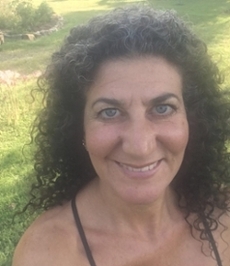
Diana Tigerlily, Associate Professor of Practice, Women, Gender, and Sexuality Studies
Meditation is a practice of sustained concentration that calms the body and quiets the mind. Research has shown that meditation can reduce stress-related issues such as anxiety, chronic pain, and sleep disorders. In this course, students will cultivate a developed personal meditation practice, enhancing their own well-being and excluding peace to those around them. This course addresses the following questions: What is meditation and what is supposed to be “happening” while I’m meditating? How will meditation help me in my daily life and with my career? Who am I? What is my purpose in life? And why do these questions relate to meditation? How do I meditate if I have racing thoughts? What happens when I regulate the relationship between thinking and breathing? How will my personal meditation practice bring benefit to others around me?
Healing begins from a state of relaxation. This statement is deceptively simple and incredibly profound. As a society, we are far from relaxed. We normalize stress and glorify sleeping less; we value productivity over life quality and balance. This course introduces students to the practice and study of Yoga as a way to create and sustain a lifelong practice of self-awareness and healthy living. We will practice and study yoga postures and philosophies, including Hatha Yoga sequences for balance and renewal; The Yoga Sutras, emphasizing the Yamas (moral restraints), and the Niyamas (moral observances); and Eastern anatomies and applications for holistic health, such as the Koshas and the Chakras; and centering tools of breathing and meditation.
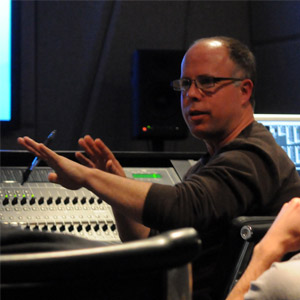
Jay Needham, Professor, Radio, TV and Digital Media
This course considers sound from a variety of unique perspectives. We'll learn about how we, as humans hear, communicate, and create through the audio spectrum as well as how we use technology to extend our abilities to listen in to our environment and to others. We'll also ask critical questions about sound from eco-critical perspectives, delving into the nature of our species as capable of experiencing and producing sound within a specific range of the audible spectrum. We will consider music as a defining feature of our humanity, the role it plays in our collective listening and creation of sound. From break-beats, film soundtracks and sound archives, we are all active collectors and makers of sound. Finally, we'll consider the historical and personal connections that sound has to architecture. It turns out that buildings can act as instruments and they also need voices. Where will your voice sound its presence?
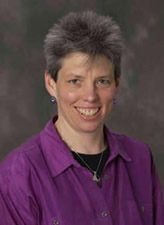
Maria Johnson, Associate Professor, Music
How can yoga and sound practices help foster clearer thinking, emotional equilibrium, a sense of peace and wellbeing, balance, flow and ease in navigating your life? How can yoga and sound practices facilitate greater awareness, compassion, empathy, presence, and a deeper interpersonal communication? How can practices of yoga and sound create safe spaces that nurture internal processes and a sense of feeling at home in your body while fostering a sense of community and belonging? What is the power of yoga, sound/music, and other expressive arts?
_____________________________________________________________________________________
Spring 2021: Faculty Fellows in the Cluster on Cradle to Cradle
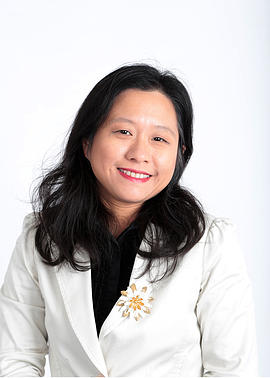
Tao Huang, Assistant Professor, School of Art and Design
- Desigining Sustainability
What have the visionaries such as Buckminister Fuller and William McDonough discovered as the new directions for the future of our society? How do we create visible and actionable solutions for sustainable development? How have various industries responded to the triple-bottom-line challenge despite their constant needs to generate profits and grow economically? What are some of the most innovative and novel ways of responding to various environmental crisis? What is systems theory? How does one conduct "life cycle analysis"? What skill sets or tools can you prepare yourself with to build a more sustainable future?
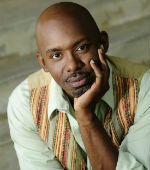
Darryl Clark, Assistant Professor, Theatre
- The Maternal in Movement
The Maternal in Movement will answer questions like how the maternal has been interpreted through dance idioms such as ballet, modern and contemporary. How have these interpretations been informed by ongoing developments in the areas of psychology and women’s studies? How can we come to a deeper understanding of role of the mother in western culture as it has been impacted by technology? How has the idea and interpretation of motherhood impacted the child in the words selected for study? How have the interpretations been informed by/inform other forms and works of art and entertainment? This course will promote a greater understanding of the history and development of dance forms for the theatre. The course will also show the contributions made to dance by women dance artists and artists of color.
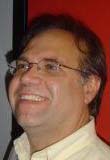
Kenneth Stikkers, Professor, Philosophy
- The Myth of Progress, and Why it Undermines Sustainability
Whereas throughout most of human history, time has been experienced as an ever-turning cycle, a distinguishing feature of the West has been its linear, progressive conception of history, On an individual level it is the process of moving from cradle to grave. On a cultural level it is the story of continuous and inevitable ‘progress.’ How did such a nation arise in the West? What are the main roots? How does it contrast non-Western experiences of time as circular? What have been its most influential articulations? What have been some of its main expressions and consequences? How has it affected the way in which we experience death in the West, and especially in America? How does it govern our understanding of education? How has it influenced Western views of economy? How has it influenced Western understandings of nature and contributed to environmental degradation?
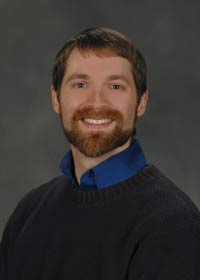
Logan Park, Associate Professor, Forestry Recreation and Park Management
- Self-Cultivation in Local Sustainable Development: The Evergreen Community Model
The Evergreen Community Model course is designed by Forestry & Natural Resource students and professors with the purpose to facilitate a comprehensive learning experience for an interdisciplinary class of honors students as they seek to apply themes in sustainable development, landscape planning, and culture-environment interactions to real-world problems at Evergreen Terrace Apartments. This class will act as a place-based education model, informing the scope of class projects with the self-identified needs of Evergreen Terrace’s multicultural population. A synthesis of formal and nonformal learning opportunities will blend personal introspection with the study of natural, physical, and social sciences - applying the different perspective lenses as we engage in field visits, community capacity building efforts, and a series of guest lectures. Students will walk away with new meaningful relationships, impactful projects, and a uniquely-tailored educative experience.
Other Honors Courses
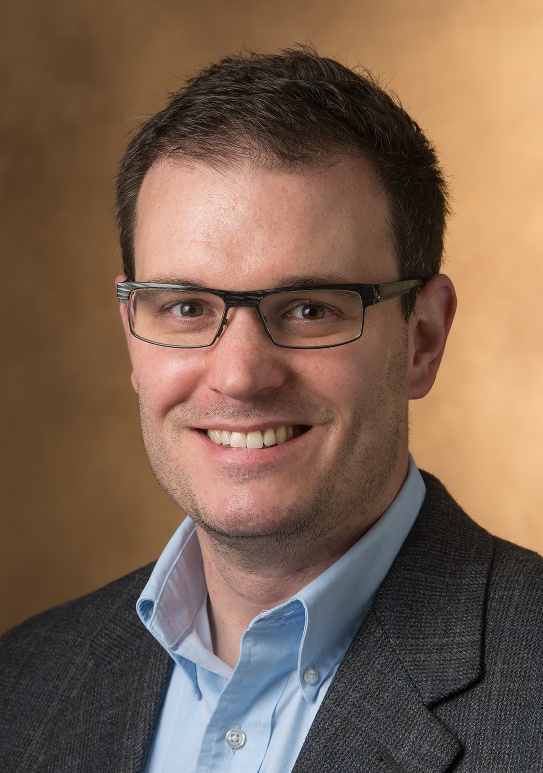
Jeffrey Manuel, Associate Professor, Department of Historical Studies, SIUE
The Mississippi River: History and Culture
The Mississippi River defines central North America and the SIU campuses. For thousands of years, the river has shaped the environment, economy, and culture of its watershed and the people who lived in it. Yet the river often goes unnoticed—a quiet part of our infrastructure—until it overtops its engineered banks to assert its fundamental nature. This seminar will focus on the Mississippi River as a crucial but little-understood actor in history. We will engage with the river’s environmental, economic, and cultural histories. The river also serves as a launching point for deeper questions about the relationship between humans and our environment: Can humans control nature? If so, at what cost? Is our economy fundamentally rooted in nature? Does the natural environment determine culture?
At the conclusion of this seminar, you will: understand environmental history approaches and methods, including how humans shape, and are shaped by, the environment; understand the history of the Mississippi River and human settlement in its watershed, from prehistory to the present; and be able to analyze major questions in human-environmental relations using interdisciplinary methods.
________________________________________________________________________________
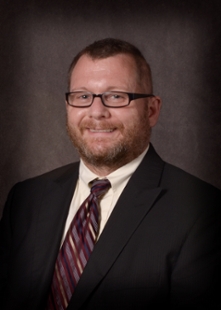
Scott McClurg, Professor, Journalism
- Calling Bullshit: Data Reasoning in a Digital World
This course draws information from http://callingbullshit.org, and is co-taught through Political Science and Journalism lenses. What do we mean, exactly, by “bullshit” and “calling bullshit”? Bullshit involves language, statistical figures, data graphics, and other forms of presentation intended to persuade by impressing and overwhelming a reader or listener, with blatant disregard for truth and logical coherence. Calling bullshit is a performative utterance, a speech act in which one publicly repudiates something objectionable. The scope of targets is broader than bullshit alone. You can call bullshit on bullshit, but you can also call bullshit on lies, treachery, trickery, and injustice. In this course we will teach you how to spot the former, and effectively perform the latter.
Kamal Ibrahim, Associate Professor, School of Biological Sciences
-
Evolutionary Biology and Religion
What are the major religious groups’ views and positions on evolution? Is there necessarily a conflict between religion and evolutionary biology? What is its nature and how has it evolved? What is the current status of the debate over “scientific creationism” and “intelligent design”? How common is religious belief among scientists and how do they reconcile belief and science?
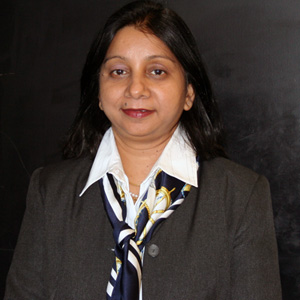
Kavita Karan, Professor, Journalism
- Health Communication: Theory, New Strategies and Campaigns
This course explores the urgent need to understand good health practices for healthy behaviors and survival strategies for leading a healthy lifestyle. What are the methods of communicating with people at different levels in the health care industry? How can we study health risks and problems of 8-10 countries across the world and how they have tackled the issues through effective plans and communication strategies? How should campaigns be planned to communicate healthy practices, prevention and control of health issues and diseases? How is the internet and new media technologies, including social media, supporting health information?
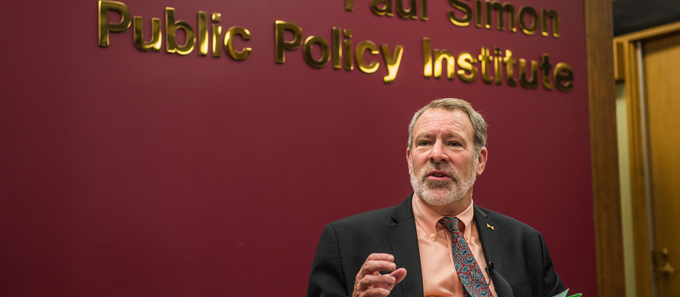
John Shaw, Adjunct Professor and Institute Director of the Paul Simon Public Policy Institute
- Restoring American Statesmanship
This course will examine the quality of statesmanship in the public affairs of the United States. It will examine the essential qualities of statesmanship, consider its importance in American history, and ask what can be done to restore the ethos of statesmanship in the United States. Statesmanship will be essential if the nation is to address such historic challenges as health care reform, deficits and debt, and climate change. Especially in the area of climate policy, the absence of statesmanship could have catastrophic consequences for the United States and the world.

Diana Tigerlily, Associate Professor of Practice, Women, Gender, and Sexuality Studies
- Meditation Theory And Practice
Meditation is a practice of sustained concentration that calms the body and quiets the mind. Research has shown that meditation can reduce stress-related issues such as anxiety, chronic pain, and sleep disorders. In this course, students will cultivate a developed personal meditation practice, enhancing their own well-being and excluding peace to those around them. This course addresses the following questions: What is meditation and what is supposed to be “happening” while I’m meditating? How will meditation help me in my daily life and with my career? Who am I? What is my purpose in life? And why do these questions relate to meditation? How do I meditate if I have racing thoughts? What happens when I regulate the relationship between thinking and breathing? How will my personal meditation practice bring benefit to others around me?
-
Yoga For Self-Realization
A sister course to Yoga for Harmonious living, this course asks: What are defining elements of Yoga and Ayurveda? How can they facilitate my holistic well-being? What is the subtle body and its relationship to my physical body and higher self? Why do certain foods impact my emotional and mental states? How can I utilize the study of my Doshas (energies) to enhance holistic health? How do I create an optimal lifestyle regimen for holistic health and self-realization?
UHON 111 - HONORS COLLOQUIUM (BY INVITATION ONLY)
The Honors Colloquium (Becoming an Honors Scholar) is an introduction to the world of opportunities that may support and enrich an undergraduate or graduate education. This course is an introduction to the process of applying for major scholarships; to the elements of writing style for major scholarship applications; and to other aspects typical of scholarships, graduate, and professional school applications. This class will guide you through this process of self-reflection as you craft essays, develop interview skills and discover research opportunities.
Participation is highly selective and requires an application, essay, and interview. For more information on this course, contact Elizabeth Donoghue at elizabeth.donoghue@siu.edu or stop by her office at Morris 110C.




